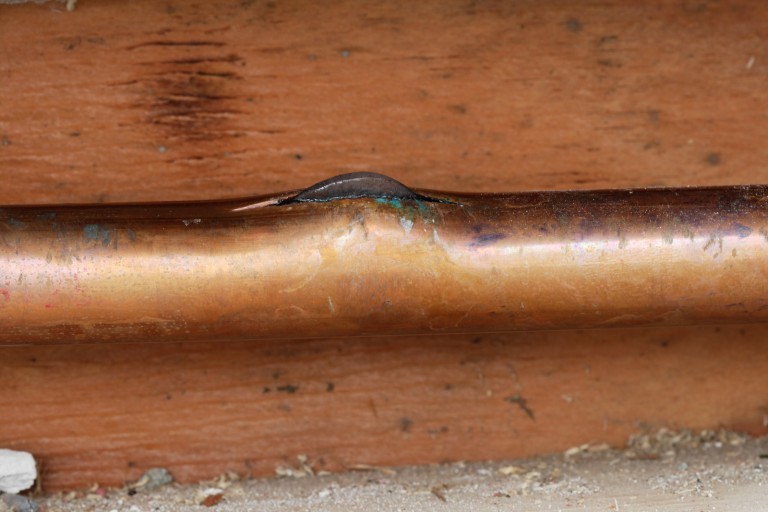Frozen Pipe Prevention

Despite having a generally moderate climate, winter in New Jersey can get pretty cold. The first time that temperatures drop down into the 20s and below we tend to forget about the pipes in our homes – and sometimes that can lead to a loss of much hot water and even more cold cash.
Just one episode of frozen pipes can wreak havoc on your home. When water freezes, it expands and puts pressure on your pipes, sometimes causing them to split. Depending on the size of the split, a burst pipe can leak several gallons of water per hour and cause thousands of dollars in damage and possibly a need for mold remediation.
Steps to avoid frozen pipes
Before those low and sub-zero temperatures hit, it’s a good idea to go over prevention measures you can take to avoid frozen and burst pipes.
-
Insulate your pipes. Exterior plumbing, and plumbing in garages, attics, and crawl spaces are most at risk because they most exposed to the weather. Insulating your pipes is one of the best things you can do to help prevent frozen pipes.
-
Keep water running. Without water movement to keep pipes warm, they can still freeze and burst, even when insulated. It’s a good practice to leave faucets running with a trickle both hot and cold water when temperatures are at or below freezing.
-
Heat limit at 55. No one likes to heat an empty house, but you should keep your home at 55 degrees Fahrenheit or warmer to protect your pipes. If you’re going to be out of town, keep your kitchen and bathroom cabinet doors open to let in warmer air around the pipes.
When pipes freeze anyway
Unfortunately, frozen pipes can’t always be prevented. If you suspect a frozen pipe (as in, there’s no water coming from the faucet when you turn it on) follow these steps:
-
Keep the faucet open.
-
Use a hair dryer, hot towels or portable space heater to apply heat to the part of the pipe that you suspect is frozen.
If a frozen pipe becomes a pipe burst, follow these steps:
-
Shut off the water IMMEDIATELY. (Knowing where your water shut off valves are is very important).
-
Turn off your heating system.
-
Turn off electric devices.
-
Cover your electricity main box.
-
Remove furniture, clothing, electronics etc. that you don’t want damaged by water.
-
Start removing water with buckets, pans, a sump pump or shop vac.
-
Place fans and dehumidifiers around the home.
-
Call your insurance company if you think enough damage occurred that will you need to file a claim.
